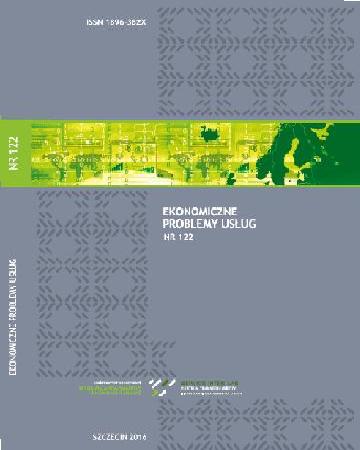
ISSN: 1896-382X
eISSN: 2353-2866
OAI
DOI: 10.18276/epu.2016.122-05



Issue archive /
nr 122 2016
Pełna cyfryzacja sektora gospodarki i jej możliwe konsekwencje – przykład mediów
(Full digitalization of an economy sector and its possible consequences – media case)
| Authors: |
Bohdan
Jung
Szkoła Główna Handlowa |
| Keywords: | digital media digital economy digitization Web 2.0 prosumption social media |
| Data publikacji całości: | 2016 |
| Page range: | 16 (43-58) |
Abstract
Basing on the example of contemporary media (one of the first sectors to go fully digital), this article tries to synthesize some of the far-reaching effects of digitalization on the economy of the media from the perspective of digital economy’s main characteristics (as enumerated by D. Tapscott in 2015). Even though the main perspective here is that of Schumpeterian creative destruction, some of the changes go deeper and further, changing the nature of businesses and conduct of economic activity.
Download file
Article file
Bibliography
| 1. | Anderson Ch. (2006), The Long Tail. Why the Future of Business is Selling Less of More, Hyperion, |
| 2. | Ang I., (1996), Living Room Wars: Rethinking Media Audiences, Routledge, Oxford. |
| 3. | Cheal D. (1988), The Gift Economy, Routledge, London. |
| 4. | Davenport T.H., Beck J.C. (2001), The Attention Economy: Understanding the New Currency of Business, Harvard Business School Press. |
| 5. | Florida R. (2005), The Flight of the Creative Class. The New Global Competition for Talent, Harper Business/Harper-Collins Publishers, New York. |
| 6. | Florida R. (2002), The Rise of the Creative Class… and how it’s transforming work, leisure, community and everyday life, Basic Books, Perseus Book Group, New York. |
| 7. | Herman E.S., McChesney R.W. (1997), The Global Media. The New Missionaries of Global Capitalism, Cassel, London, Washington. |
| 8. | Giesler M. (2006), Consumer Gift System, „Journal of Consumer Research”, Vol. 33. |
| 9. | Goldhaber M.H. (1997), The Attention Economy and the Net, Conference of digital information. |
| 10. | Ingram M. (2015), The attention economy and the implosion of traditional media, „Forbes”, August 12. |
| 11. | Mauss M. (2001), Socjologia i antropologia: Szkic o darze. Forma i podstawa wymia-ny w społeczeństwach archaicznych, Wydawnictwo KR, Warszawa. |
| 12. | McQuail D., Siune K. (1998), Media Policy. Convergence, Concentration and Com-merce, Sage Publications, London, Thousand Oaks, New Delhi. |
| 13. | Meeker M., Internet Trends 2015, http://www.slideshare.net/kleinerperkins/ |
| 14. | internet-trends-v1 [dostęp 14.01.2016]. |
| 15. | Pine J., Gilmore J. (1999), The Experience Economy: Work is Theatre and Every Busi-ness is a Stage, Harvard Business School Press, Boston. |
| 16. | Prensky M. (2001), Digital Natives, Digital Immigrants, NCB University Press, Vol. 9, No. 5, October. |
| 17. | Rifkin J. (2000), The Age of Access. How the shift from ownership to access is trans-forming modern life, Penguin Books, London. |
| 18. | Sahlins M. (1972), Stone Age Economics, Routledge, London, New York. |
| 19. | Stebbins R. (1996), Casual and Serious Leisure and Post-traditional thought in the information age, World Leisure and Recreation, No. 3, Vol. 38. |
| 20. | Tapscott D. (2009), Grown up Digital: How the Net Generation is Changing Your World, McGraw-Hill, New York. |
| 21. | Tapscott D. (2015), The Digital Economy. Rethinking Promise and Peril in the Age of Networked Intelligence, Mc Graw Hill Education, New York – London – Sydney. |
| 22. | Tapscott D., Williams A.D. (2006), Wikinomics. How Mass Collaboration Changes Everything, Portfolio, Penguin Group, New York. |
| 23. | Toffler A. (1970), The Future Shock, Bodley Head, London. |
| 24. | Toffler A. (1980), The Third Wave, William Morrow and Co., New York. |
| 25. | Zorska A. (2011), Chaos czy twórcza destrukcja. Ku nowym modelom w gospodarce i polityce, Oficyna Wydawnicza SGH, Warszawa. |
| 26. | Zorska A., Molęda-Zdziech M., Jung B. (2014), Kreatywność i innowacyjność w erze cyfrowej. Twórcza destrukcja 2, Oficyna Wydawnicza SGH, Warszawa. |